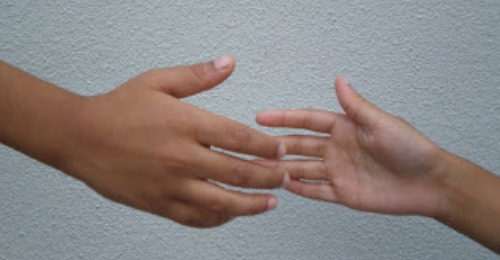THE TOUCH THAT HEALS
Wisdom 1:13-15; 2:23-24; 2 Corinthians 8:7, 9, 13-15;
Mark 5:21-43 or 5:21-24, 35b-43
Sue Knutson was hiking alone in the mountains when her foot slipped between two boulders. She felt sharp pain in her ankle, and then collapsed on her back.
Miles from civilization, Knutson, a nurse, held her leg in the air and used the only resource available—her hands—to reduce the swelling and shooting pain. She held her hands a few inches from her ankle and breathed deeply and slowly. The pain began to ebb, and after thirty minutes she was able to limp to the road unassisted. At the emergency room, doctors said she had a severe medial lateral sprain and she’d have to be in a cast for four months. Six weeks later, her ankle had healed enough for doctors to remove the cast. Knutson had used the power of touch.
That’s what Jesus does in today’s dramatic passage. We have two healing stories and the people involved could not be more different. Jairus represented the upper crust of society: rich, powerful, and religiously prominent. The woman was a social outcast: since she was haemorrhaging, she was considered unclean and not allowed to set foot in the synagogue. In each situation, Jesus’ touch makes the person whole. God, in Jesus, loves them into wholeness and restores them to community and communion.
Even more, he establishes a relationship with them! He calls the woman “daughter” and Jairus’ daughter “little girl”. God, in Jesus, makes them his children.
This Gospel reveals Jesus as the source of life and healing; it reveals our God as “pro-life”! As the first reading says: “God takes no pleasure in the extinction of the living... he fashioned all things that they might have being.”
Each of us needs healing. Like Jairus’, we need to come to the Lord, fall on our knees and plead with him to lay his hands on us. Or like the woman, we need to touch him. May we hear his words “talitha koum” addressed to each one of us, and experience healing and wholeness. And may we, in turn, touch others to health and wholeness.




